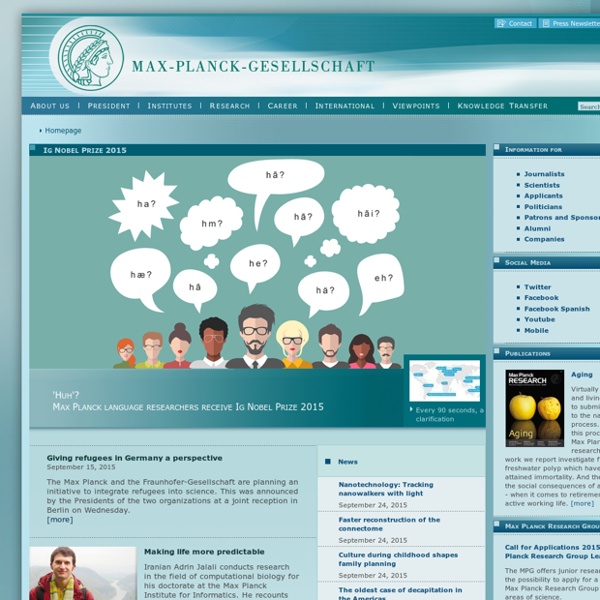



Foreign Law Translations - Homepage Skip to main page content The University of Texas at Austin School of Law Main menu: Institute for Transnational Law — Foreign Law Translations France Germany Israel Translated Decisions Austria Translated Decisions Welcome This site is a resource for French, German, Austrian and Israeli legal materials in the fields of constitutional, administrative, contract and tort law. Funded in part by the MD Anderson Foundation. About this site:
Academic Earth - Introduction: Milton, Power, and the Power of Milton Since 2008, Academic Earth has worked diligently to compile an ever-growing collection of online college courses, made available free of charge, from some of the most respected universities. We proudly build on the precedent set forth by MIT OpenCourseware, believing that everyone deserves access to a world-class education. To facilitate this goal, we have curated links to over 750 online courses and 8,500 individual online lectures, giving students of all ages unparalleled access to college courses they may otherwise never experience. Whether supplementing existing coursework, or learning for the sake of learning, anyone with an internet connection has the freedom to learn at their own pace from world-renowned experts, without the burden of rising tuition costs. To access this collection of free online college courses, simply select your area of interest from the menu below.
About the IRZ Foundation: IRZ.de Seit zwanzig Jahren unterstützt die IRZ als gemeinnütziger Verein Staaten bei der Entwicklung rechtsstaatlicher und marktwirtschaftlicher Strukturen. Dabei entwickeln wir unsere Strategien und Konzepte ständig weiter und passen diese anderen Staaten und Regionen an. Unseren Auftrag dazu erhalten wir von der Bundesregierung und der EU. ...in effektiven bilateralen und multilateralen Projekten... Die Experten der IRZ engagieren sich überall dort, wo es darum geht, rechtsstaatliche, demokratische Verfassungsstrukturen zu unterstützen, die Grundlagen für privatrechtliches und wirtschaftliches Handeln zu schaffen oder nationales Recht dem der EU anzugleichen. ... mit Ergebnissen, die sich sehen lassen können. Die Arbeit der IRZ ist lohnenswert angesichts der großen Bedeutung einer rechtsstaatsorientierten internationalen Zusammenarbeit. Es lohnt sich, die Arbeit der IRZ zu unterstützen – ob mit Geldspenden oder durch projektbezogene Mitarbeit.
Wikiversity Federal Ministry for Economic Cooperation and Development Free ebooks - Project Gutenberg